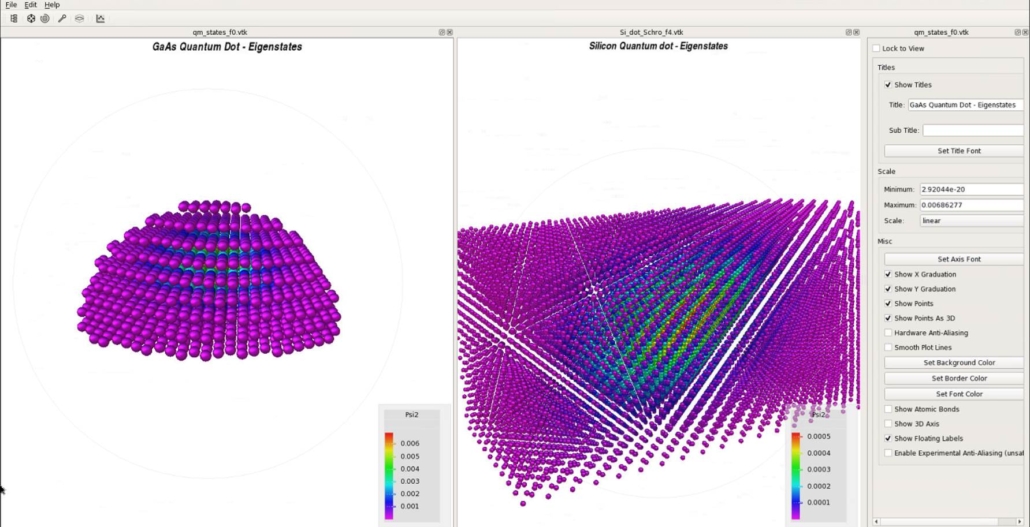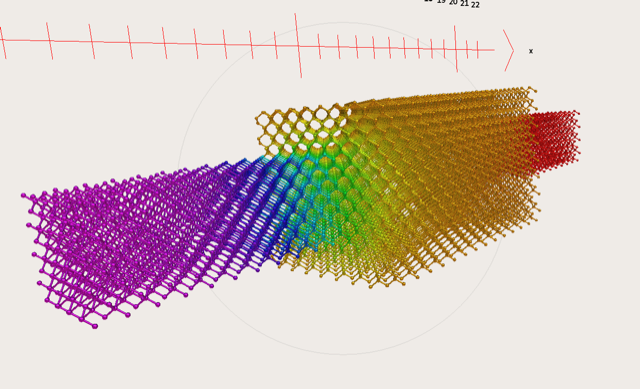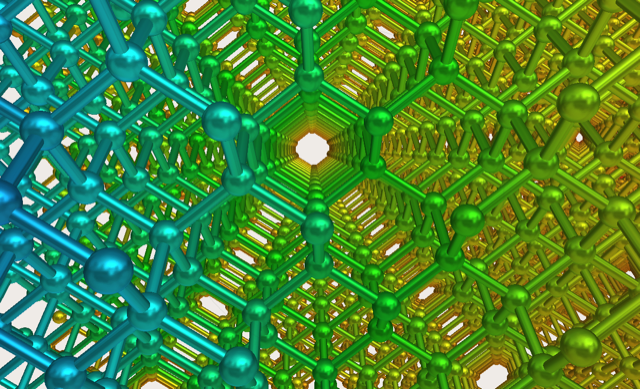Victory Atomistic Device and Nanostructure Simulator
Nanotechnology products exhibit advanced quantum physical effects. Victory Atomistic aims to provide quantum and semi-classical hybrid solution in the domain of nanostructure properties like strain relaxation, phonon modes, electronic structure using the tight-binding model, self–consistent Schrödinger-Poisson calculations, and quantum transport.
Read more about Silvaco’s partnership with Purdue University HERE.
Benefits
- Scalable from a few atoms to a million-atom structure
- Self-consistent Schrödinger&Poisson solver giving first principle understanding of device operation at atomistic level
- Non-Equilibrium Green’s Functions (NEGF) solver for an accurate simulation of I(V) characteristics including coherent and incoherent scattering mechanisms
- Mode space and Büttiker probe like advanced optimization techniques reducing computational load
- Results can be easily fed into a TCAD simulation, thus providing better calibrated parameters for classical or semi-classical TCAD simulation
Applications
- Advanced CMOS, TFETs
- 2D material devices including novel materials like TMDs
- Quantum confinement devices, such as quantum dots and wells
- Electron transport including scattering effects, for FinFETs, quantum wires, slabs
- Optical devices including LEDs.
- Study of Topological Insulators.
- Experimental new device structures.





Enabling the Next Generation of High-Voltage Power: Gallium Oxide Trench Schottky Diodes from Simulation to System
Victory TCAD 2025 Release
Accelerating Vertical GaN Power Technology Development with Physics-based Digital Twins for 800V DC AI Factory Power Infrastructure
Dynamic Testing for Power MOSFET